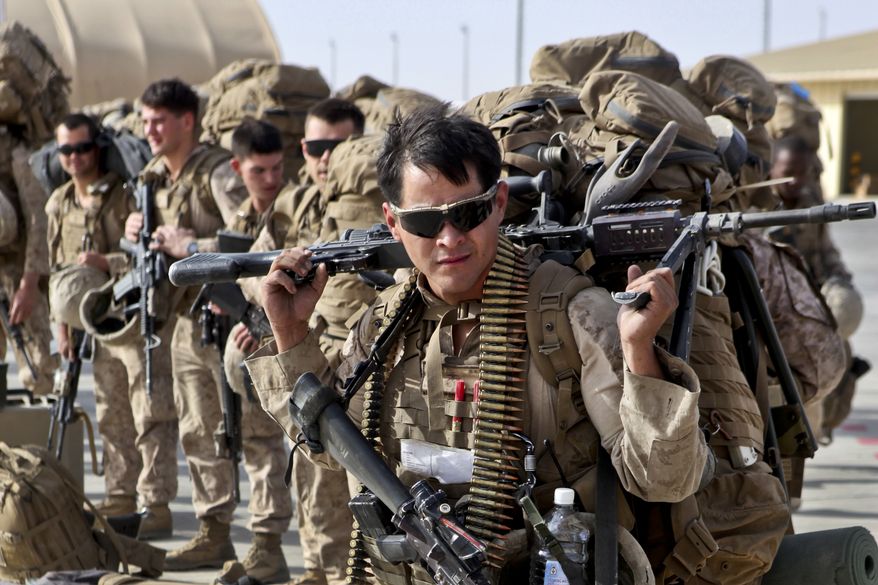 |
| U.S. Army parachute infantry in the Zabul province of Afghanistan in 2014. Photo: WAPO |
As a former captain and airborne soldier in the U.S. Army, I say be careful what you wish for.
With Capt. Kristen Griest and First Lt. Shaye Haver recently becoming the first female soldiers to complete Army Ranger School, demands for the complete integration of women in the U.S. military are growing. In 2013 then-Defense Secretary Leon Panetta officially lifted the ban on women serving in ground-combat roles. On Jan. 1, 2016, all branches of the military must either open all positions to women or request exceptions.
 |
| Capt. Kristen Griest of Orange, Connecticut (L) and 1st Lt. Shaye Haver of Copperas Cove, Texas |
As a former captain and airborne soldier in the Army’s Second Infantry Division Support Command, I say be careful what you wish for. Overturning a long-standing tradition in a martial organization like the U.S. military will undoubtedly have unintended consequences. I am particularly concerned with demands that the Army permit women to join its Infantry Branch.
Don’t misunderstand, I was thrilled when Capt. Griest and First Lt. Haver earned their Ranger tabs. I was especially pleased when Army cadre and peers assured me that the Ranger School’s high standards were maintained. As a woman, I support equal rights to a sensible point. At the same time, women must acknowledge that equality does not mean selective equality. I wish it did. I want to see those hard-charging, superwomen sisters of mine pursue every career opportunity the military offers men. No doubt they can do it—and do it well. But Ranger School for these two exceptional individuals is not the same as allowing women to serve in the infantry.
First, opening the infantry to women necessitates revisiting Rostker v. Goldberg, the 1981 Supreme Court ruling that only men are required to register for the draft. If the infantry is compelled to include women, the argument against women registering for the draft will be invalidated. If women are to be treated “equally” and serve in the infantry, shouldn’t they be drafted into the infantry at an equal rate?
The unlikely event of a draft aside, should women in an all-volunteer Army serve in infantry positions in equal numbers alongside men? If so, how would this affect American military families and morale? Would such changes dissuade women from voluntarily joining the Army? And most important, would significant numbers of women in the infantry serve to strengthen or weaken national defense?
From a practical standpoint, I believe the impact would be negative. Many civilians, veterans and active-duty service members will disagree. Many will view me as disloyal to women in arms. I respect and understand opposing perspectives. I also appreciate the sacrifices of women before me who suffered and overcame countless barriers so that I could live big dreams, choose to attend the United States Military Academy at West Point, and serve my country without feeling professionally inhibited, marginalized or disrespected.Read the rest of this op-ed HERE and follow a link to a related story below:
Marine study finds all-male infantry units outperformed teams with women
If you like what you see, please "Like" us on Facebook either here or here. Please follow us on Twitter here.




No comments:
Post a Comment